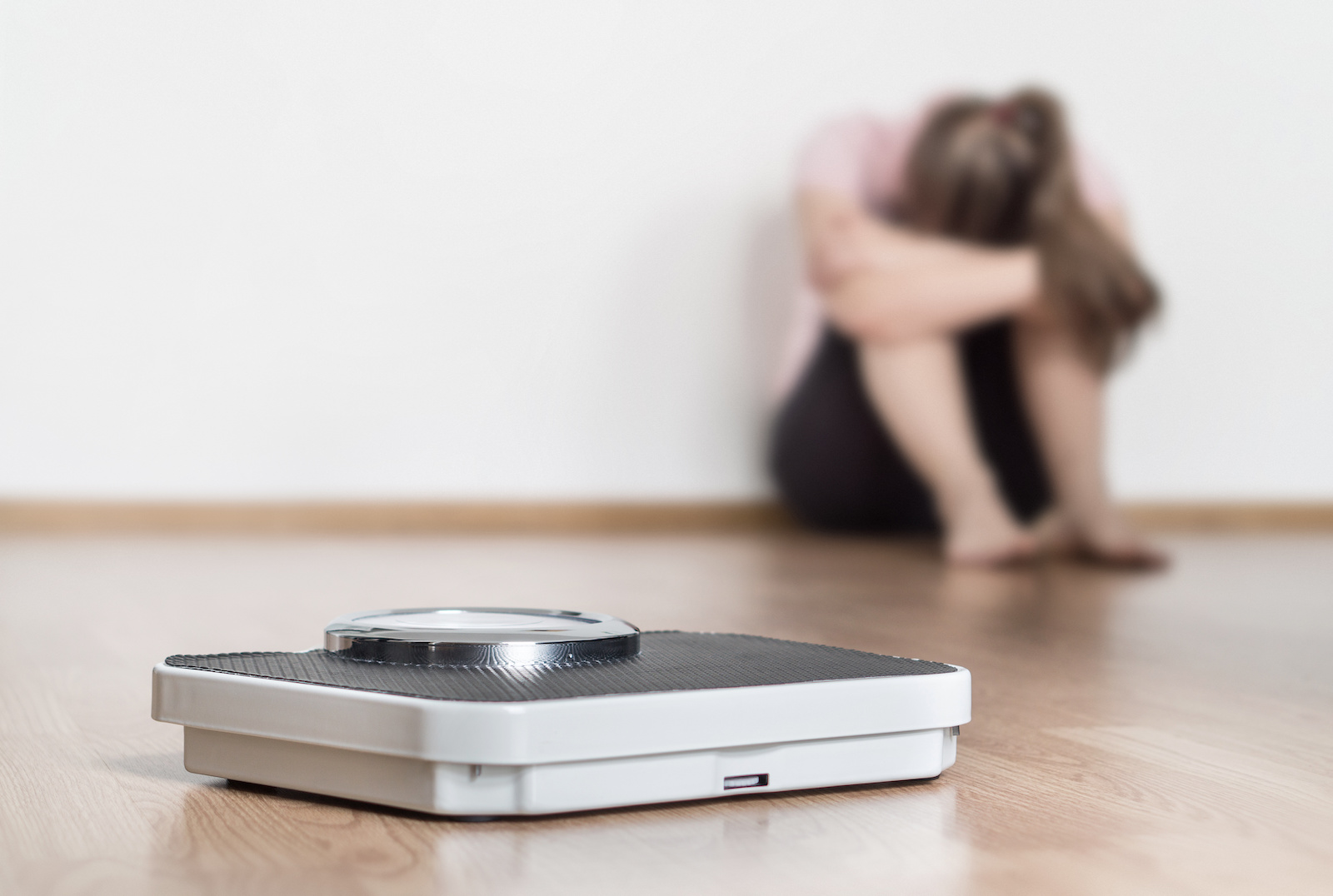
Table of Contents
The earlier an eating disorder is detected, the easier it will be to recover. When living with an eating disorder, it can be hard to step back and objectively evaluate the situation. Passing it off as dieting or caring about your appearance is easy initially, but the longer you are in it, the harder it will be for you to get help.
Individuals with anorexia and other eating disorders probably won’t show each sign and symptom, so it’s especially important to keep a close eye on your loved one that you suspect is suffering from anorexia. The stereotype of someone that is just skin and bones and avoids food is just that, a stereotype. Sure, there are people with anorexia that fit that description, but most don’t.
Having an eating disorder or having a loved one with an eating disorder can feel scary and overwhelming, but help is available. With a strong support system, recovery from anorexia is possible. If you are concerned that you or someone you care about may have anorexia, read on to learn about the warning signs and how to get help.
Signs That You Need Anorexia Recovery
Health, fitness, and maintaining a healthy weight are important. Others are interested in losing weight. These behaviors and desires are normal, but things can quickly take a turn when someone becomes obsessed with their weight.
Anorexia has a lot of warning signs, many of which are emotional and behavioral.
These signs include:
- Dramatic weight loss
- Dressing in layers to stay warm or hide weight loss
- Obsession with food, fat grams, calories, weight, and dieting
- Refuses to eat certain foods, sometimes entire food groups (carbs, etc.)
- Comments regularly about feeling overweight or fat, even with weight loss
- Experiences abdominal pain, lethargy, cold intolerance, constipation, or excessive energy
- Denial of hunger
- Develops food rituals such as excessive chewing, rearranging their food, etc.
- Cooks meals for other people but doesn’t eat
- Constantly makes excuses for avoiding situations involving food, including mealtime and family get-togethers
- The endless need to work out so they can burn off the calories they have consumed
- Has a rigid exercise regime, regardless of injury, fatigue, weather, or illness
- Isolation from usual friends and activities
- Concerned about eating in public
- Unable or refuses to maintain a weight that is appropriate for their age and stature
- Fear of being fat or gaining weight, even if they are underweight
- Distorted view of their shape or weight
- Intense need for control
- Loss of period in post-pubescent women
These signs can be hard to see initially, as many of these symptoms can be explained by other things. Unfortunately, this leads to anorexia often being overlooked. There are also physical signs that are easier to see.
Some of these physical signs include:
- Gastrointestinal complaints, including stomach cramps, acid reflux, constipation, etc.
- Trouble concentrating
- Abnormal lab results, such as low hormone and thyroid levels, anemia, low blood cell counts, slow heart rate, or low potassium
- Difficulty regulating body temperature
- Dizziness
- Dental problems
- Fainting
- Trouble sleeping
- Dry skin
- Swelling around the salivary glands
- Dry and brittle nails
- Muscle weakness
- Calluses and cuts across the top of finger joints due to induced vomiting
- Yellow skin
- Poor wound healing
- Weakened immune system
Side Effects of Anorexia: Why Recovery Is Imperative for Health and Well-Being
Anorexia is a serious eating disorder that can lead to severe health complications, including death. Eating disorders are complex and can seriously affect an individual’s mental and physical health, relationships, and productivity.
Every organ in the body can be impacted, so getting help is important before serious damage occurs. Commonly, those suffering from anorexia can deal with complications in their cardiovascular, gastrointestinal, neurological, and endocrine systems, amongst other health issues.
Side effects of anorexia can include:
- Cardiovascular: When the body is not getting the calories it needs, it will begin breaking down its tissue, beginning with muscle. This means the heart is impacted before anything else. As a result, the risk of heart failure is very high. In addition, the lack of electrolytes can lead to heart failure, irregular heartbeat, and even death.
- Gastrointestinal: Slowed digestion, stomach pain, blood sugar fluctuations, bacterial infections, constipation, stomach rupture from binging, esophageal rupture, swollen salivary glands, pancreatitis, intestinal perforation, toxoplasmosis, toxocariasis.
- Neurological: Difficulty sleeping, damage to protective layer on nerves, lack of blood flow to the brain, sleep apnea, dizziness.
- Endocrine: Without the needed fat and cholesterol, the body’s hormone levels can dip, including thyroid hormones, estrogen, and testosterone. This can lead to menstruation beginning to fail. In addition, decreased sex hormones can lead to osteoporosis and osteopenia, resulting in fractures and broken bones.
- Other Consequences: Lack of temperature control can lead to the body growing a coat of hair called lanugo that is meant to keep the body warm in periods of starvation. You may also see dehydration, anemia, decreased white blood cells, and kidney failure.
Another side effect of anorexia is death. This is often due to malnutrition or dehydration, in which the organs in the body shut down since there are not enough calories and nutrients to keep it going.
How to Find the Right Recovery Options for Anorexia
Getting on the road to recovery is not easy and starts with admitting that there is a problem. If you or a loved one are showing the signs of anorexia, there is help. The behaviors you have been displaying can be unlearned with the help of a professional. You can make it through anything when you have a support system and a strong recovery plan.
Once you have chosen to change things and reach out for help, the real work begins. It may feel overwhelming, scary, or embarrassing to ask for help, but anorexia is hard to beat alone. Therefore, it is essential to your health and well-being that you reach out for help immediately to prevent any serious complications from happening.
You deserve the chance to live free from the bondage of negative self-image or fear of food. Reach out today to a premier rehab facility that can guide you to a healthier, more fulfilling life right now.
Sources:
Ocean Recovery has strict sourcing guidelines and relies on peer-reviewed studies, academic research institutions, and medical associations for our references. We avoid using tertiary references as our sources. You can learn more about how we source our references by reading our editorial policy.
1. Mitchell JE, Peterson CB. Anorexia Nervosa. N Engl J Med. 2020;382(14):1343-1351. doi:10.1056/NEJMcp1803175
OCEAN RECOVERY EDITORIAL GUIDELINES
The internet contains a vast amount of misinformation, but when it comes to your health only peer reviewed, research centered data matters. At Ocean Recovery, all content published throughout our website has been rigorously medically reviewed by a doctorate level clinician, and cross checked for medical accuracy. Our editorial process helps our readers trust that the information they are consuming is factual and based upon scientific data. Your health is our top priority, find out more about how we safeguard the integrity of information on our website. Read More About Our Process






